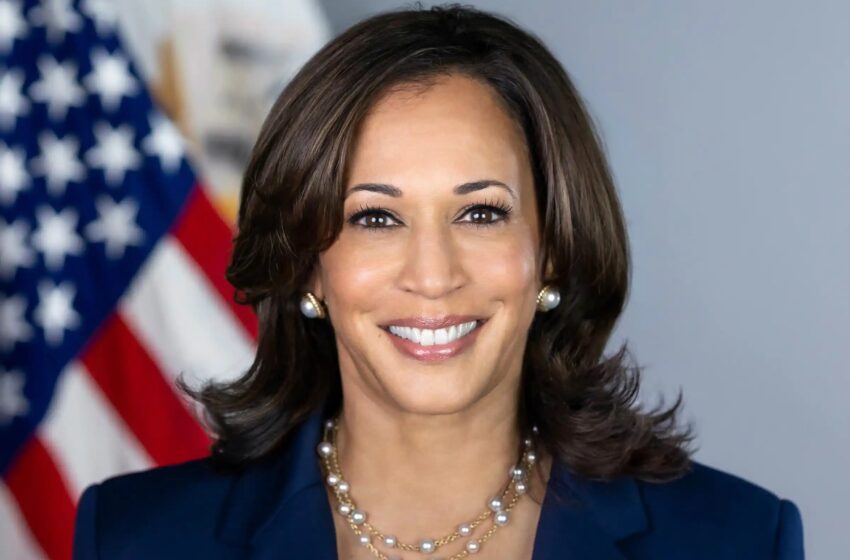Why Kamala Harris is helping us all ‘Figure It Out’

Kamala Harris; photo credit: White House
By Abhay Dandekar
As I do every year when I submit my ballot, I have been asking myself what it feels like to be seen and heard. For me, each election cycle has been an exercise in “figuring it out” as I cast my vote, usually vetting each candidate and fact checking dispassionately to see who deserves my trust . This time, though, with a candidate who actually looks like many in my own family, my process has changed significantly.
It actually started this past summer as, remembering the accented English of my grandmothers, I decided to create my first meme.
In Sanskrit, Kamala means LOTUS…
In America, Kamala means POTUS
In a way, with her name and her groundbreaking candidacy, Kamala Harris’ nomination felt aspirational. I live near Berkeley, and my own family exists because of the policies from the civil rights movements of the 1960’s. Yet, the activism of that era had not ignited much enthusiasm till she entered the race. I found a new life raft of engagement and a new anchor for my own Americanism. Her story as a Black American and an Indian American, with her identity on full display, feels like an anthemic fight song for those yearning for someone who looks like them to lead courageously and help them “figure it out”. Indeed, the American spirit is brighter with the world’s languages and cultures informing our future, and American leadership is even stronger with black and brown women illuminating the path ahead.
READ: Kamala Harris’ running mate celebrates Diwali with South Asian Americans (November 1, 2024)
Vice President Harris and I share a lot in common. We are two Gen-X California natives. People have trouble pronouncing our Sanskrit-based names, and we both love our immigrant families. She has lived at several cultural intersections, naturally connecting to those who straddle different worlds and constantly negotiate equally fitting in and standing out. Her campaign has carefully steered away from conversations about gender and race to focus on her record and abilities. Yet an undeniable part of her political career is her own narration of upbringing and values as gifts from her mother Shyamala. With little time left, her multiplicity and relatable journey are powerful tools for voters to feel seen, heard, and included. They sharpen a new American patriotism that has been redefined by gender and race, giving license to pay attention to Kamala Harris’ identity not because we have to, but because we want to.
While her campaign has created exuberance and joy, helping voters shirk off apathy will require more effort. Ironically, while gender and race speak to her strength in unifying the country, they are equally at the core of most attempts to divide, distract, and derail her momentum. While Vice President Harris has skillfully parried these attempts, her identity secures a deeper empathy among Americans who are still getting to know her. She will need to build more confidence and attract undecided voters who, when examining her record and proposed agenda, can feel like her presidency will not leave them behind. As the child of immigrants, as a woman of color, and as someone who is constantly asking those around her “are you ok?”, she must seize every opportunity in these last few days to answer the critical “why” for each swing voter and find common ground with the struggles and untapped power of those who are “figuring it out”.
For me, Kamala Harris liberated an individuality to my previously anonymous vote. She sparked a wake-up call to feel confident and engaged in this important election, and the “Lotus for POTUS” meme helped crystallize this sentiment for me, my family, and many others. Will she be a generational candidate who can draw upon her experience and record as an incumbent, and equally allow her identity to serve as an accelerator of faith and optimism in a new national unity? My grandmothers, who like Shyamala, were proud immigrants to this country, would have demanded it. They are also surely smiling somewhere at the historic promise of a woman with their shared legacy in America’s highest office: the ultimate realization of all of us “figuring it out”.
(Abhay Dandekar is a pediatrician, an Indian American, and hosts the podcast “TRUST ME I KNOW WHAT I’m DOING”. He’s a centrist who votes Democrat, and lives near Berkeley, CA)
